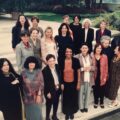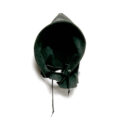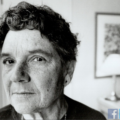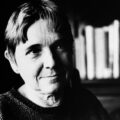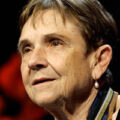The enduring power of Adrienne Rich
A Note from the Editor:
I have been so privileged to have the chance to edit this special issue on Adrienne Rich, in commemoration of the third anniversary of her death. The essays you’ll find here are personal, intellectual, careful, and engaging; they explore questions of motherhood, immigration, race, literary ethics, lesbianism, identity, poetics, and more. Reading them and working with these authors has set a high water mark in my time at the helm of Critical Flame, and it gives me the opportunity to do exactly what every critic and reviewer hopes to be able to do: to introduce you to one of my favorite writers, to encourage you to read and re-read her incomparable work. I’m grateful to all the contributors of this special edition, but I’d especially like to thank Mia You, who provided instrumental support and encouragement. Enjoy.
Adrienne Rich in Chile: an Interview with Magdalena Edwards
Los Angeles Review of Books editor Magdalena Edwards interviewed Adrienne Rich in 2001 for the Chilean newspaper, El Mercurio, discussing poetry and politics, poetic form, her most recent collection, the history of Chile, and much more. Now the interview appears in English for the first time.
“Syntax as Power: The Legacy of Adrienne Rich,” by Charles Altieri
“Rich is for me the poet after WWII who shows most fully how it is possible to ‘love with all our intelligence,’ so that intelligence and love manage to sustain each other, even in a culture where those two values seem inextricably at odds with one another.” Read the rest of Altieri’s brilliant, insightful essay.
“Witness: #BlackLivesMatter, Claudia Rankine, and Adrienne Rich,” by Joshua Jacobs
How does Adrienne Rich’s late work as a poet and unsparing social critic prefigure both the struggle of #BlackLivesMatter activists as well as the brilliance of Claudia Rankine’s Citizen? Jacobs explores the echoes and familiar techniques, and considers what the late feminist can offer activists today.
“Best American: Adrienne Rich’s Radical Canonization,” by Carmen Giménez Smith
In 1996, Adrienne Rich used one of the most homogeneous, ho-hum, establishment po-biz platforms to enact a radical critique of American poetry’s narrow, exclusionary politics. “That we’re still talking about this edition and no other,” writes Giménez Smith in her essay, “speaks to how actively Rich transgressed an invisible supremacy.”
“Notes toward a Politics of Location,” by Mia You
After moving with her husband from Cambridge, MA, to Utrecht, the Netherlands, and giving birth to her first child there, Mia You renegotiates her suddenly re-embodied existence, racially and politically. “I am the child of an immigrant mother,” she writes. “I have a white-educated mind. I am an immigrant mother. I am a second generation first generation Korean-American-Dutch. And my re-education begins here.”
6 Writers on the Lasting Influence of Adrienne Rich
Whitman contained multitudes, and then Rich released them. Jessa Crispin, Christina Davis, Jill McDonough, Carissa Halston, Ailbhe Darcy, and Chloe Garcia-Roberts reflect on the influence that Rich had on them—as poets, as critics, and as people.
“Implied Freedom: Rich’s Radical Writer/Teacher,” by Rachel Edelman
For Adrienne Rich—as for many educators working today—teaching and social change were inseparable practices, both linked to consciousness of the self and to the community. How can writer/teachers survive in the face of so much adversity? Longtime teacher and writer Rachel Edelman explores her radical vision.
“The One Who Find Our Way: Finding My Mother in ‘Diving into the Wreck’,” by John Streamas
Streamas, a first-generation American, son of a Japanese immigrant, discovers echoes of his mother’s personal struggle in the unlikeliest activity: typesetting a classic work of feminist poetry. “My mother and her war bride friends inhabited some of that wreckage,” he writes. “As Rich dove into it, she outlined a path toward self-definition that bypassed those systems of power.”
“Coming of Age Through Adrienne Rich,” by Anne Charles
Moving to Boston in the late 1970s to begin her life as an out lesbian, Anne Charles considers the saving grace and incredible, life-altering wisdom of “Saint Adrienne.” Charles writes, “In her essays and speeches, Rich introduced me to what has become my bedrock political belief: that feminism rests on the struggle to free all people, including those marginalized by race, national and economic circumstances, age, sexuality, level of ability, and immigration status.”
About Daniel Pritchard
Daniel E. Pritchard is the founding editor of The Critical Flame.

